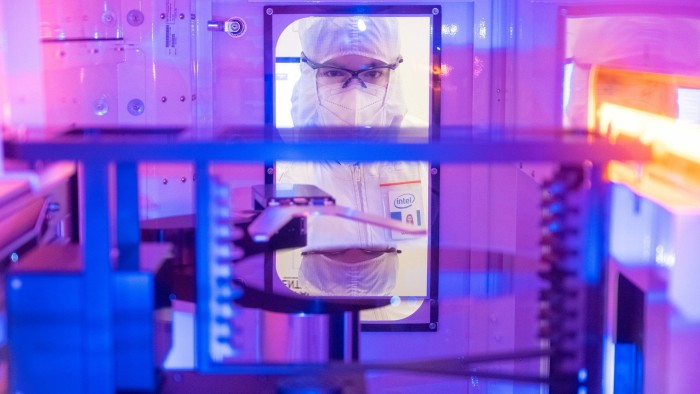Unlock the White House Watch newsletter for free
Your guide to what Trump’s second term means for Washington, business and the world
If it takes a village to raise a child, it takes an entire industrial and financial ecosystem to build a state-of-the-art semiconductor plant. Just ask the world’s leading chip company Taiwan Semiconductor Manufacturing Corporation, which manufactures 90 per cent of the world’s highest performing semiconductors. Since its creation in 1987, TSMC has benefited from massive government support and partnered with scores of local investors, companies and educational institutions, weaving an extraordinarily intricate innovative web. TSMC is far more than a private company; it has been described as a project of the Taiwanese state.
In his desire to reshore chip manufacturing capacity to the US, Donald Trump is now cosplaying as a Taiwanese industrial planner. The US government is becoming the biggest shareholder in Intel by taking a 10 per cent equity stake in the struggling US chip company. Trump’s stated aim is to strengthen US manufacturing muscle and “make Intel great” again. He sees it as another “deal” from which his administration can profit.
The trouble is that the US president would appear to lack the strategy, resources and attention span to turn the lossmaking company around. Instead, his spasmodic meddling in the operations of yet another private company is likely to do more harm than good.
There are undoubtedly strong national security and economic reasons why the US should want to rebuild its chip manufacturing capacity. The western world’s extreme technological dependence on Taiwan’s semiconductor plants is a massive geostrategic vulnerability. The Trump administration has been browbeating foreign chip manufacturers, such as TSMC, to open plants in the US with some success. But it also wants to bolster homegrown alternatives, most notably Intel, a fallen star of the US technology sector.
For the government to convert the $8.9bn of grants that have been extended to Intel under the Chips Act into equity is not the craziest idea. Indeed, the move was originally backed by a broad coalition of US politicians, including leftwing Senator Bernie Sanders, when the Biden Administration first adopted the Chips Act in 2022. The Trump administration has said that the shareholding in Intel will be non-voting.
However, the Trump administration’s entire modus operandi is to treat the private sector as the plaything of the US government’s executive branch. It was not long ago that Trump was demanding that Intel’s chief executive Lip-Bu Tan be fired for his previous business dealings with the Chinese. He has also previously described the Chips Act as a “horrible, horrible thing.”
The administration has already struck a deal with Nvidia and AMD allowing them to export chips to China in return for handing over 15 per cent of related sales to the US government. It has also negotiated a “golden share” in US Steel in return for waving through its acquisition by Nippon Steel. It is not hard to imagine that Apple and Nvidia will soon come under extreme pressure to buy more Intel chips. Yet Intel’s foreign customers may become markedly more wary of dealing with a US government-related entity. The president has promised more Intel-like deals.
Trump’s arbitrary interventions in the economy are more redolent of the ways that despotic regimes, such as Russia or China, operate rather than the traditional practices of the global champion of free markets. It may well be that in some research- and capital-intensive sectors, such as semiconductors, sustained government support is indispensable. But as TSMC has shown, corporate success in such industries relies on building decades-long relationships of trust with customers and stakeholders, rather than on seeking the gratification of transactional, overnight flings.

